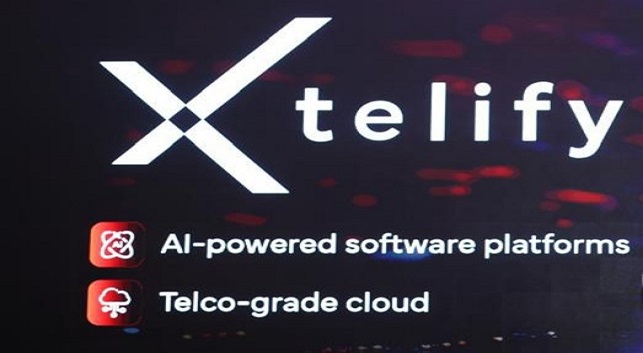Telecom
COVID-19: FG Insists Data Usage Complies with Rules

Dr. Isa Ali Pantami, minister of Communications and Digital Economy, has stated that his ministry is committed to ensuring that the use of data in the fight against COVID-19 complies with laid down regulations.

Dr. Isa Ali Pantami
Pantami who made this known through a statement released by the Ministry, reacted to reports that some unscrupulous persons claimed to have accessed important personal data of Nigerians.
The Minister noted that he is taking into consideration the concerns of well-meaning stakeholders on the privacy implications of government’s legitimate use of private data to check the spread of COVID-19, provide palliatives to vulnerable members of society and prevent criminal activities.
He further explained that neither the Ministry nor any organ of the Federal Government directed that any such database be shared to any person for any purpose other than the legitimate, statutory purpose they were collected for. He, therefore, urged the public to disregard any information from any group or individuals seeking to confirm or collect personal records for any purpose.
The statement reads: “The attention of Dr Isa Ali Pantami, Minister of the Federal Ministry of Communications and Digital Economy (FMoCDE), has been drawn to reports of devious schemes perpetrated by some unscrupulous persons claiming they have access to personal data of Nigerians such as SIM databases, bank verification numbers or any other personal records of Nigerians.
“The Ministry also notes the concerns of well-meaning stakeholders on the privacy implications of government’s legitimate use of private data to check the spread of COVID-19, provide palliatives to vulnerable members of society and prevent criminal activities accentuated by the global health crisis we are currently dealing with.
“The Federal Government will never ask citizens to confirm their records via phone calls or digital means without an elaborate structure to ensure the safety of these records and effective communication to the public in this regard.
“To this end, I have directed the National Information Technology Development Agency (NITDA) as the custodian of the Nigeria Data Protection Regulation (NDPR), to issue a comprehensive framework to guide public institutions on the lawful processing of personal data for public and vital interests such as public health, welfare, security and related matters.
“The Ministry notes the concerns of our well-meaning stakeholders on the possibility of privacy infringement in the use of private data to combat COVID-19.
“Government’s ultimate purpose in its fight against COVID-19 is to minimise direct and collateral damages. In the face of the threat to life arising from public health, hunger and security factors, Nigeria like every progressive society, is utilising its digital assets and infrastructure to tackle the pandemic and its effects.
“Every use of private data is strictly for the promotion of the security and welfare of Nigerians. Any unlawful disclosure, abuse or misuse of private data constitutes a criminal offence, punishable under the laws of Nigeria.
“The Minister therefore use this medium to encourage all regulators or institutions that utilise personal data for public good to prioritise information and cyber-security. In the light of the above, the Minister said “Compliance with the NDPR and other laws relating to personal data processing is mandatory for public and private organisations.”
He further directed that all data controlling organisations to provide a means for efficient public communication across all platforms available throughout this period to respond to public enquiries and comments.
Telecom
NCC to Sanction Operators over Regulatory Violations

Nigerian Communications Commission (NCC) has strongly condemned the flagrant violations of regulatory provisions by Information and Communications Technology (ICT) operators.

In response to ongoing non-compliance and persistent quality of service failures, the Commission has drafted stiffer, non-monetary sanctions to hold erring operators accountable.
Dr. Aminu Maida, executive vice chairman, NCC, issued the warning amid widespread service lapses, including frequent outages, equipment malfunctions, and poor infrastructure maintenance by telecom tower companies and other ICT service providers. These violations undermine the quality of Internet and voice services and threaten Nigeria’s growing digital economy.
Investigation shows that companies were unmoved by financial sanctions, violating regulatory provisions unabated and effortlessly paying the fine. Insider sources revealed that some companies even made monetary provisions for the fine in their annual financial statements, a move that the industry regulator, the Nigerian Communications Commission (NCC), frowned on.
The NCC said the move was to demonstrate further its prioritisation of compliance over financial gains in regulatory oversight.
Hence, the Commission is planning a review of its Enforcement Processes Regulations (EPR) 2019, which stipulates monetary fines for violations.
A consultation paper signed by Maida, sighted showed that the commission is considering asymmetric sanctions.
In this system, the sanctions imposed on smaller and bigger players for committing similar infractions are different to ensure industry sustainability, among other things.
Among the five regulatory proposals being put forward by the commission ahead of the activation of its rule-making process for the review of its ERP, 2029, as enshrined in Section 71 of the Nigerian Communications Act (NCA), 2023, is the possibility of implementing alternative mechanisms in the form of non-monetary sanctions on erring licensees.
The regulator also provides the basis for each of the five regulatory proposals, which provide a broad outline of the proposed review and show the foundational basis for the regulatory thought process.
It has also invited comments from stakeholders that will help shape the specific changes and amendments that the Commission will put forward when it activates the rule-making process later in the third quarter of 2025.
The commission proposes “to set non-monetary administrative measures restricting certain licensing privileges and benefits. Hence, the Commission will enforce non-monetary administrative measures on infractions related to licensing conditions, interconnection indebtedness and similar non-complying conduct of licensees.”
According to Maida, this Regulatory Proposal aims to redirect the focus of administrative sanctions from financial fines to other administrative measures and regulatory actions.
This deviation will enable the NCC to rely on alternative approaches to deepening compliance and deploy effective enforcement measures to deter licensees.
According to him, the second proposal is “to set liability for emerging and corrosive conducts such as call masking, call refiling and SIM Boxing.
This Regulatory Proposal intends to widen both criminal and administrative liabilities related to offences and infractions related to interconnection, call termination and call manipulation by licensees and non-licensees.”
NCC said these measures will be tied to the powers vested in the Commission by Section 70 of the Act to issue regulations on matters related to ‘communications offences.’
The third proposal by the regulator is to clarify general and specific administrative fines in the EPR, 2019.
On the regulatory thought process behind this third proposal, Maida said in the consultation paper, “This Regulatory Proposal is intended to provide clarity on general and specific administrative fines in Regulations 15 and 16 of the Enforcement Processes Regulations 2019.”
In addition, Maida added, “This will entail a review and detailed amendment of the Schedule of the Regulations that itemises the different breaches and their related fines. It will also remedy the identified shortcomings highlighted by the outcome of the Regulatory Impact Assessment (RIA) conducted in 2024 on the legislation.”
The fourth proposal being put forward to key stakeholders on the EPR 2019 proposed review is to outline administrative and liability measures against the Board and Management of Licensees that perennially breach the Nigerian Communications Act 2003 provisions and relevant subsidiary legislations.
Based on the fourth regulatory proposal, Maida said, it was aimed at reviewing the provisions of Regulation 18 of the Enforcement Processes Regulations 2019.
“The Proposal expects a more detailed provision that sets administrative measures and regulatory actions that can affect the management and board of licensees’ existence, composition and activities. The Proposal will provide details and qualifying instances when the Commission can invoke the provisions of Regulation 18,” he pointed out.
According to the commission in the consultation paper, the fifth regulatory proposal outlines measures that will enable the Commission to enforce asymmetric administrative and liability measures in the Nigerian Communications Sector to ensure sustainability.
The commission said that the fourth regulatory proposal is intended to rely on asymmetry benchmarks in outlining fines and enforcement actions, and the benchmark will consider the size of licensees.
“This is to ensure sustainability and focuses on enforcement measures that will not create existential challenges for smaller and medium-sized licensees. While an exemption will not be provided, the quantum and nature of measures will be implemented asymmetrically. This Proposal will also remedy the identified shortcomings,” he added.
Recall that the Commission’s ERP was first issued in 2009 and reviewed in 2019. The Regulations provide prescriptions for imposing liabilities and administrative sanctions for breaches of the Nigerian Communications Act 2003 provisions, its subsidiary legislations, licensing conditions, permits and the Commission’s directions. The Regulations provide for general and specific sanctions itemised in its Schedule and outlined against each identified infraction.
In 2024, the Commission conducted an RIA on the implementation of the Regulations since its last review in 2019 and also assessed its impact on the Nigerian Communications Sector. The outcome of the RIA sets out areas that will require changes and amendments.
First, sampled respondents within the Sector raised concerns about the lack of clarity on the grounds for enforcement and procedures for determining such enforcement.
Second, some licensees cited the lack of clarity on general and specific fines, and another set recommended less reliance on penalties.
Thirdly, some sampled licensees stated that fines and administrative measures need to be fair and sustainable to avoid crippling smaller licensees.
Lastly, there are also comments on the need to encourage compliance in the Sector, without relying on adverse regulatory measures, such as financial sanctions.
Telecom
Airtel Africa Signs Multi-year Strategic Partnership with Xtelify

Xtelify, a fully owned subsidiary of Bharti Airtel (‘Airtel’) housing all of Airtel’s digital assets and capabilities, today launched an AI-powered, future-ready software platform that will help telcos all around the world rid themselves of underlying complexity, focus on the customer, helping improve experience, lower churn and raise ARPU.

Addressing every layer of the telecom value chain, the solution comes with a converged data engine for AI led insights and intelligence at scale; a workforce platform for real time task streamlining; and an experience platform for managing every element of the customer journey for a telco.
Xtelify signed a multi-year, multi-million dollar partnership with Airtel Africa, as part of which, Xtelify will provide its software platforms, which include Data Engine, Work and IQ. Deploying Xtelify Data Engine and Xtelify Work will empower Airtel Africa’s 150K-strong field team across 14 countries with market insights for micro-targeted strategies and unlock critical use cases like spam and fraud protection for its customers across Africa. Xtelify IQ will enable secure, real-time, omnichannel customer engagement, enhancing both service quality and customer experience.
Jacques Barkhuizen, Group Chief Information Officer – Airtel Africa, said, “This partnership marks a transformative leap in our mission to build Africa’s digital future. By harnessing Airtel’s AI platforms that have proven scale in India, we are not only simplifying our operations but also accelerating hyper-personalized experiences for our customers.
“In addition, this is Airtel leveraging Airtel – a powerful synergy that will drive sustainable growth, innovation, and unmatched value across our 14 African markets.”
Binod Srivastava, Chief Business Officer – Global Business, Bharti Airtel, said, “We are thrilled to partner with Airtel Africa. By combining our innovative Xtelify platform with Airtel Africa’s vision, we will drive their digital transformation and address industry’s most complex challenges like fighting spam and fraud to ensure utmost customer protection. We look forward to a lasting partnership, working together to set new benchmarks for the industry.”
Xtelify also launched a sovereign, telco-grade cloud platform – ‘Airtel Cloud’. Tailored to handle 140 Crore transactions per minute for Airtel’s own use in India, this sovereign Cloud platform is now being extended to meet the ever-evolving needs of businesses in India.
Hosted on next-gen sustainable data centres, with Gen-AI based provisioning, and managed by 300 certified cloud experts, the highly secure and reliable Airtel Cloud offers IaaS, PaaS and advanced connectivity and guarantees secure migration, effortless scaling, lower costs and no vendor lock-ins.
Telecom
MTN @ First-ever CED, Pledges to Address Subscribers’ Concerns

MTN Nigeria, has pledged the company’s renewed commitment to transparency and responsiveness in addressing customer concerns.

Karl Toriola, chief executive officer, MTN Nigeria,
Karl Toriola, chief executive officer, MTN Nigeria, stated this at the telecoms provider its first-ever Customer Engagement Day (CED) in Lagos.
Speaking during the event, Toriola fielded real-time questions from customers, responding to issues ranging from data quality to customer service gaps.
“We’ve invested heavily to build a network that delivers value for money. While data in Nigeria remains among the most affordable globally, our priority is quality and consistency that truly powers ambition. Today is about transparency: answering your questions, listening to your concerns, and showing that MTN is not just a service provider; we are a partner in your journey,” he said.
The company emphasised that the Customer Engagement Day was designed as an open forum for dialogue between MTN executives and customers.
The hybrid event, themed “We See You. We’re With You,” featured sessions on digital literacy, data usage, youth mentorship, and financial inclusion, aimed at improving subscriber experience and usage efficiency.
Ayham Moussa, chief operating officer, MTN Nigeria, in his opening remarks, highlighted the company’s long-standing connection with Nigerians, noting that its operations were built with input from ordinary citizens.
“When MTN began, it was built by people like you: engineers, entrepreneurs, everyday Nigerians. Today, we connect over 80 million people, and our focus remains simple: to stand with you in your hustle, support your ambitions, and make life easier. This journey is about listening, improving daily, and being a shield for homes and businesses across Nigeria,” he said.
A key session on Data Usage and Management offered participants practical guidance on how to manage and conserve data, with many customers raising questions about consumption patterns and transparency in billing.
Ugonwa Nwoye, chief customer relations & experience officer, MTN, stated, “We know how essential data is; it’s how we live, work, and connect. From parents streaming classes to small businesses on Zoom, we see your daily realities. That’s why we’re focused not just on providing data but on helping you use it better, with practical tools and tips that put you in control. We hear you, and we’re acting on what you’ve told us today.”
Onyinye Ikenna-Emeka, chief marketing officer of MTN Nigeria, reiterated the importance of continuous engagement: “Today has been about listening, learning, and connecting with you. We’ve heard your complaints, your ideas, and even your personal stories. From parents balancing their children’s needs to businesses working tirelessly online, be assured that we listen, we care, and we do. Your trust means everything to us, and we’re committed to turning today’s conversations into real actions.”
Ikenna-Emeka stressed that MTN Nigeria seeks to reposition itself not only as a telecom operator but also as a listening partner in the everyday lives of its subscribers.
The event also provided a platform for small businesses, young professionals, and digital creators to interact with MTN leaders during Speed Mentorship sessions, where they shared their goals and received guidance on navigating the digital economy, technology adoption, and entrepreneurial strategy.
Visitors engaged with various thematic lounges, including MoMo PSB, MTN’s fintech subsidiary, where tools for financial inclusion were showcased.
Other activities included a digital skills academy, interactive tech demonstrations, and a startup pitch challenge, reflecting MTN’s efforts to align services with evolving customer needs.

 General News3 days ago
General News3 days agoFearless Freedom Launches to Tackle Inequality and Champion Global Economic Inclusion

 Telecom2 days ago
Telecom2 days agoMTN @ First-ever CED, Pledges to Address Subscribers’ Concerns

 General News2 days ago
General News2 days agoNOA Warns of Fake N1000 Notes in Circulation, How to Identify Them

 E-Financial2 days ago
E-Financial2 days agoWest Africa Emerging as Crypto Adoption Epicentre- SEC Boss

 General News2 days ago
General News2 days agoNCC, IHS Towers Lead Others To NITRA-ALTON CNII & Telecom Sustainability Conference 2025

 Telecom2 days ago
Telecom2 days agoAirtel Nigeria Raises Infrastructure Spending to $39m

 Broadcasting2 days ago
Broadcasting2 days agoGovernment of Ghana Slams MultiChoice, Insists on DStv Price Cut

 Broadcasting2 days ago
Broadcasting2 days agoSERAP Issues 48-Hour Ultimatum to Niger Governor Over Badeggi FM Closure



























